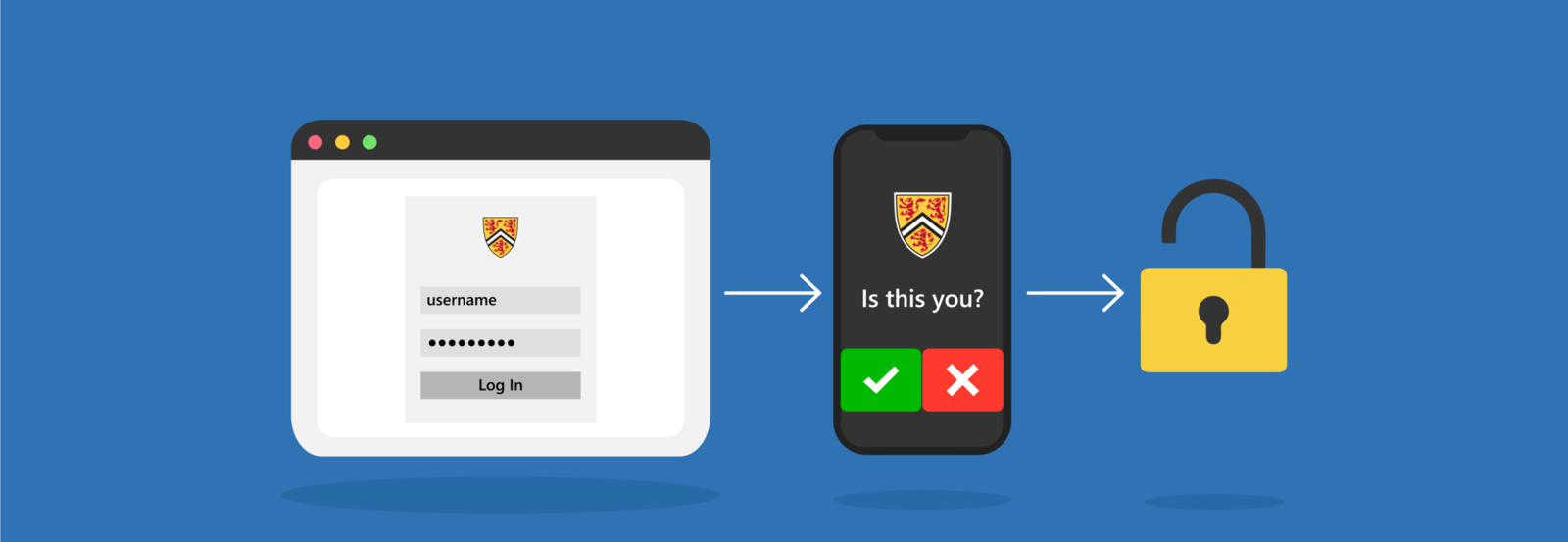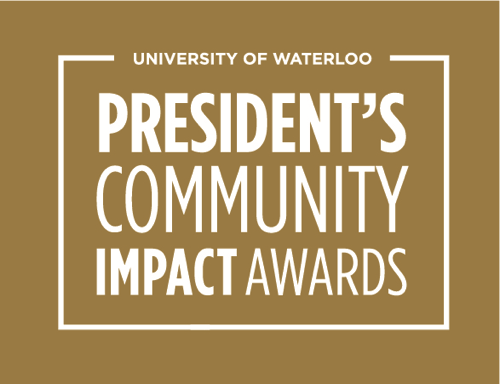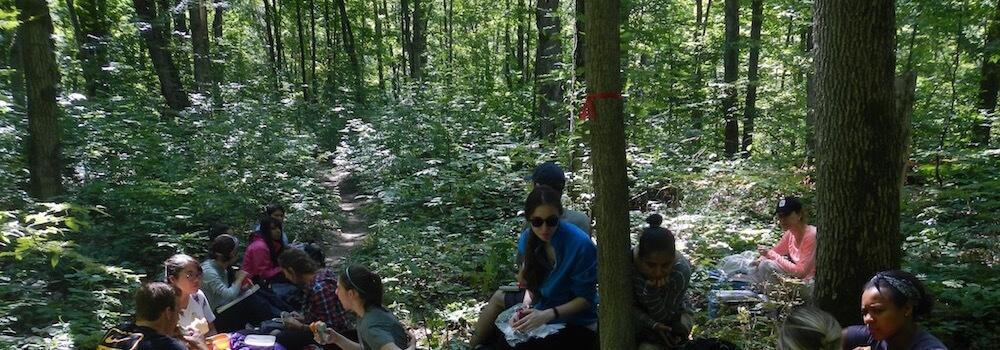Editor:
Brandon Sweet
University Communications
bulletin@uwaterloo.ca
Two-factor authentication at Waterloo: Are you ready for November?

A message from Information Systems & Technology (IST).
The University of Waterloo community has seen many challenges over the last 6 months, both new and old. One of the older issues affecting us is returning in new and surprising ways.
Using the COVID-19 pandemic to gain access to your data
Phishing - the sending of deceptive email in order to steal passwords and credentials – has long been a part of life online. Since the beginning of the COVID-19 pandemic, though, security professionals have seen a rise in the number of phishing attacks being made.
The reason for this increase is the opportunity presented by the crisis. People have been shaken out of their regular routines, and messaging from employers, government, and business has changed in frequency and urgency. The confusion caused by these changes allows phishing attacks to imitate messages that we aren’t experienced with, increasing the chance that we will fall for scam emails.
These phishing attacks prey on our concerns and the lack of information that goes with a rapidly changing situation. They pose as information about local pandemic infections, offers for masks and protective gear, bizarre conspiracy theories, or false information about government relief programs.
Protect yourself
There are many ways to protect yourself from phishing. Among those recommended by IST are:
- Think before you click. If you feel a strong emotional response to email, consider whether that is clouding your judgment.
- Evaluate. If you are getting a special offer from a retailer you don’t usually shop with, a lucrative offer from them is less likely to be genuine. If email from a co-worker or manager asks you to do something unusual, like purchasing gift cards, it’s probably a scam.
- Verify. Contact correspondents directly using known email addresses, websites, or phone numbers, not through the links provided in the suspect email.
- Protect. Avoid disclosing personal or professional information my email or phone to unknown parties. Never provide credit card numbers, social insurance numbers, passwords, or similar confidential information to others.
Two-factor authentication (2FA) will help
One of the strongest defenses against the theft of your online accounts is two-factor authentication (2FA). By requiring not only a password, but also a second non-password method of verifying your identity, you can be protected even if your password is stolen.
Effective November 3, 2020, use of 2FA will be mandatory to access specific campus systems, including Office 365, Workday, Quest, LEARN, Concur, Unit4, and others. Prepare yourself early for this change by downloading the ‘Duo Mobile’ app to your smartphone and enrolling in Duo 2FA. Alternatively, other authenticators are supported, including the YubiKey. Visit https://uwaterloo.ca/2fa for more information.
Q and A with the experts: flu shots and COVID-19
The University of Waterloo has a number of experts available for comment on various aspects of the COVID-19 pandemic.
Canadian health-care professionals are expecting an increase in demand for influenza vaccinations for the upcoming flu season.

Professor Nancy Waite at the University of Waterloo School of Pharmacy conducts research into the influenza vaccine, vaccine decision-making and strategies to encourage vaccination. With flu season around the corner—and Australian pharmacies reporting a 180 percent increase in people getting the flu shot this year over last—Professor Waite shares what to expect as we move into flu season amidst a global pandemic.
What factors influence vaccine decision-making?
A lot of people think that you are either pro-vaccination or anti-vaccination. However, vaccine decision-making is seldom that simple. Most of us have questions about one vaccine or the other at some point and we may be “hesitant” until we get that question answered. As a result, it is best to think of vaccine decision-making as being on a continuum. Everyone is somewhere between vaccine acceptance and vaccine refusal, with most people being closer to vaccine acceptance.
What strategies can encourage people to get vaccinated?
One of the factors most likely to encourage people to get vaccinated is to have their questions answered by someone they trust – usually their health-care professional or a public health official. Searching on the web can be confusing as jurisdictions have different vaccine recommendations, and there is a lot of inaccurate and incomplete information out there. So it is best to write your questions down and contact your doctor, nurse or pharmacist to get your answers.
The other thing we know is that people just forget to be vaccinated – for example, do you know when your last tetanus shot was? – or aren’t aware that they are at risk for a specific disease and should get the associated vaccine. Another factor that encourages people to get vaccinated is for their health-care professional to remind them about relevant vaccinations and to vaccinate them at that health-care visit. It’s great if you can be the prompt for this by asking questions like “am I up-to-date on my vaccines?”
Finally, one of the barriers to getting vaccinated is time. We lead busy lives and getting vaccinated has to fit in amongst all of our other priorities. That is why getting your flu shot at a pharmacy is so popular. Pharmacists are the leading flu vaccinator in Canada; they have convenient locations and hours, and appointments are not usually required.
With flu season approaching, will COVID-19 impact vaccination rates?
Yes. More people will want to get vaccinated this year against the flu.
We have seen this play out in Australia where the flu season has already overlapped with COVID-19. Some pharmacy chains were reporting 180% more flu vaccinations being given early in the season.
In addition, our research team has completed a survey with Canadians over 50 and even those who did not receive the flu vaccine in previous years indicated they were more likely to get vaccinated this year. Some of the reasons include increased awareness about how serious viruses can be and the concern that having the flu would make them more vulnerable to COVID-19.
A small percent said they were less likely to vaccinated for the flu as they didn’t want to risk getting exposed to COVID-19 in the vaccination setting and their self-isolation would decrease their risk of flu.
To help decrease the COVID-19 exposure risk, health-care providers are taking extra precautions this year. They will be wearing personal protective equipment (PPE) and many will have vaccination times/clinics so that those getting vaccinated will not interact with sick patients.
Overall, we are expecting an increase in the number of flu shots and Public Health Units, physician offices and pharmacies are all preparing for a very busy flu vaccine administration time this fall.
Professor Nancy Waite is Associate Director, Clinical Education at the School of Pharmacy. Professor Waite’s research program examines the development and assessment of curricula to produce pharmacists prepared to provide medication management in an evolving healthcare landscape, as well as explores the impact of novel pharmacist interventions and pharmacist scope of practice changes on medication management and health outcomes.
Reminder: Nominations open for President's Community Impact Awards

Nominations for the fourth annual President’s Community Impact Awards are now open. Launched in 2017, the President’s Community Impact Awards celebrate great community leaders and the impact they create through volunteerism, philanthropy, or engagement.
Award winners may be distinguished through such community service activities as volunteer work, public speaking, school outreach, or other outstanding community service.
The awards will:
- Reward and recognize community excellence
- Inspire us to engage in activities that develop leadership, foster social responsibility and contribute to the well-being of our community
- Promote community pride and participation
- Engage with, serve, and draw strength from the diversity of our external communities.
Up to four awards will be handed out in two categories each year:
Community Leader awards - A Community Leader is a current University of Waterloo student, faculty or staff member who "impacts their community through voluntarism, philanthropy, or other community engagement."
University Champion awards - A University Champion is an individual or organization from Waterloo Region or Stratford who has "demonstrated a commitment to championing the impact of the University in our community either through partnership with the institution or in working with individual students, faculty or staff of the University."
Check out the list of past PCIA recipients.
Terms of reference and nomination guidelines can be found on the Office of the President's website. The guidelines for collecting supporting documentation are also available.
Presidential Nominating Committee update and other notes
"Since the last update to the community, the search for Waterloo’s next president is proceeding as planned," says a note from Presidential Nominating Committee chair Cindy Forbes. "The committee has completed its first round of interviews of a number of outstanding individuals. It will continue its work over the coming weeks to lead to a recommendation this fall to the Senate and the Board of Governors for the University’s seventh president. Following these approvals, a public announcement and celebration will follow."
You can get yourself up to date on the activities of the Presidential Nominating Committee by visiting the PNC's website.

The University of Waterloo's Ecology Lab is inviting members of the University community to join them on a virtual tour in Instagram today at 11:00 a.m. "The Ecology Lab staff will take you on a guided tour of the naturalized gardens around the Environment buildings," says a note from the Ecology Lab. "This event is being held in partnership with the Sustainability Office as part of the ‘spend more time in nature’ series."
The Faculty of Environment's Ecology Lab is a one-stop resource centre that supports lab and field activities, courses, projects, and outreach initiatives.
The Institute for Quantum Computing (IQC) is hosting a fireside chat tonight that will feature PhD candidate Shayan Majidy speaking about life as a graduate student, and what it's like to share quantum and science with a young audience. Majidy is a first-year PhD student in Raymond Laflamme’s research group at the Institute for Quantum Computing. A native of Guelph, Ontario, he completed an MSc in applied mathematics and an MSc in physics before starting his PhD at Waterloo. Shayan is passionate about science outreach. He is the founding director of Unentangled, a program designed to bring graduate science research to everyone.
The virtual fireside chat takes place tonight at 7:00 p.m. live on YouTube. This is one of several IQC fireside chats taking place this term.
The first CrySP Speaker Series on Privacy talk for the term will take place on Tuesday, October 6 at 1:30 p.m. Eastern, at an online link TBA. “Taking on Big Tech: New Paradigms for New Possibilities,” will feature Professor Safiya Noble of the University of California, Los Angeles' Department of Information Science. In her recent best-selling book Algorithms of Oppression, Professor Noble challenges the idea that “Big Tech” offers an equal playing field for all forms of ideas, identities, and activities. Her work argues that the combination of private interests, along with the monopoly status of a relatively small number of internet companies, leads to a limited understanding of how racism is created, maintained, and disseminated in everyday digital engagements. Data discrimination is a real social problem, and in this talk, Noble offers a powerful set of data points, examples, and provocations. She asserts we are just at the beginning of creating new paradigms of justice with the tech sector.
Know someone in grade 10, 11 or 12 who has an interest in health or technology? Waterloo’s annual Hi5 challenge, a creative competition for high school students interested in healthcare and the use of information technology, is now open for submissions. This year's theme is mental health during a pandemic.
Visit https://uwaterloo.ca/public-health-and-health-systems/hi5-health-informatics-challenge for more information. The submission deadline is November 30. Winning students have a chance to win a prize valued up to $200 and network with health tech entrepreneurs from Waterloo Region.
Link of the day
When and Where to get support
Students can visit the Student Success Office online for supports including academic development, international student resources, leadership development, exchange and study abroad, and opportunities to get involved.
Instructors can visit the Keep Learning website to get support on adapting their teaching and learning plans for an online environment. The following workshops are current offerings from the KL team (CTE, CEL, ITMS, LIB):
Getting Ready to Facilitate Online Courses: TA Training, beginning Tuesday, October 13.
Remote Course Design Essentials, beginning August 26.
Independent Remote Course Design Essentials. Continuous self-enroll course in LEARN.
ATLAS: Part 2, Wednesday, September 30, 2020, 1:00 p.m. to 3:00 p.m.
Thirty Minute Thursdays – PebblePad, Thursday, October 1, 2020, 12:00 p.m. to 12:30 p.m.
Assessment Design Cafe, Tuesday, October 6, 2020 to 9:30 am to 11:00 a.m.
Thirty Minute Thursdays – PebblePad, Thursday, October 8, 2020, 12:00 p.m. to 12:30 p.m.
Employees can access resources to help them work remotely, including managing University records and privacy of personal information.
Interested in learning more about engaging your students in an online course? The Centre for Extended Learning has created a new resource for you called "Fostering Engagement: Facilitating Online Courses in Higher Education"
ThisOpen Educational Resource was designed for post-secondary instructors and teaching assistants who would like to better understand the critical role of facilitation in online course delivery, and build practical skills and strategies that are relevant, effective, and authentic.
Here are some tips for staying healthy while working from home.
The Writing and Communication Centre is rolling out virtual services and programs for fall term:
- Undergrad students -- work with us to brainstorm, draft, revise, and polish assignments by meeting with our writing advisors in virtual appointments. Chat with our friendly and knowledgeable peer tutors in our virtual drop-ins and PJ-friendly writing groups. Or experience an online workshop at your own pace.
- First-year Warriors! Check out Waterloo Ready to Write to build your skills for writing success.
- Graduate Students -- meet with an advisor in a virtual appointments, take an online workshop, join the grad writing community at our Virtual Writing Cafés and #WaterlooWrites groups, develop your academic voice at Speak Like a Scholar, or make progress on your thesis at Dissertation Boot Camp.
- Instructors and faculty -- Request and access WCC workshops for use in your courses, join a virtual writing group, or speak with a writing advisor about a writing project.
We understand that these circumstances can be troubling, and you may need to speak with someone for emotional support. Good2Talk is a post-secondary student helpline based in Ontario, Canada that is available to all students. If you feel overwhelmed or anxious and need to talk to somebody, please contact the University’s Campus Wellness services, either Health Services or Counselling Services. You can also contact the University's Centre for Mental Health Research and Treatment.
The Library has published a resource guide on how to avoid information overload.
The Faculty Association of the University of Waterloo (FAUW) continues to advocate for its members. Check out the FAUW blog for more information.
The University of Waterloo Staff Association (UWSA) continues to advocate for its members. Check out the UWSA blog for more information.
WUSA supports for students:
Food Support Service food hampers are currently available from the Turnkey Desk on weekdays from 9:00 a.m. to 4:00 p.m. in the Student Life Centre. If you have any questions please email us at foodsupport@wusa.ca.
The Bike Centre – Now open by appointment for your bicycle repair and rental needs in the Student Life Centre. For more information or to schedule an appointment, please go to: https://wusa.ca/bikecentre
Centre for Academic Policy Support - CAPS is here to assist Waterloo undergraduates throughout their experience in navigating academic policy in the instances of filing petitions, grievances and appeals. Please contact them at caps@wusa.ca. More information at http://wusa.ca/caps
WUSA Commissioners who can help in a variety of areas that students may be experiencing during this time:
- Equity – equity@wusa.ca
- Co-op and Experiential Affairs – coop.affairs@wusa.ca
WUSA Student Legal Protection Program- Seeking legal counsel can be intimidating, especially if it’s your first time facing a legal issue. The legal assistance helpline provides quick access to legal advice in any area of law, including criminal. Just call 1-833-202-4571.
Empower Me is a confidential mental health and wellness service that connects students with qualified counsellors 24/7. They can be reached at 1-833-628-5589.
When and Where (but mostly when)
Healthy Warriors at Home. Free programming including Online Fitness, Health Webinars, Personalized Nutrition and more from Warriors Athletics and Rec. Open to students, staff, faculty and alumni. Register today.
Renison English Language Institute continues to offer virtual events and workshops to help students practice their English language skills.
Portage-Global Water Futures Research Data Management webinar series: “Beginning with the End in Mind,” Tuesday, September 29, 1:00 p.m. Register here.
QPR Mental Health Training for Students, Wednesday, September 30, 9:30 a.m. Online. Register on GoSignMeUp.
Mastering Low Mood: Learning Skills from CBT for Students, Wednesday, September 30, 10:00 a.m., Online – Register on GoSignMeUp.
Noon Hour Concert: IY IO SO HOT. Exploring sonic possibilities, and afro-futurist cosmologies through improvisation. Wednesday, September 30, 12:30pm, Online. Free admission.
Warriors Athletics and Rec Virtual Open House. Learn about online and in person programs, and what facilities are available. Open to Students, Staff and Faculty. Wednesday, September 30, 1:00 p.m.
Concept Intro Session: Should You Build a Company, Wednesday September 30, 5:00 p.m. Virtual Event.
Water Institute Research Conference 2020: Can we achieve SDG6 in a post COVID-19 world, September 30 to October 1, 8:00 to 9:30 a.m.
NEW - Balsillie School of International Affairs presents “Global Insights: The Future of Work in a Post-COVID-19 World”, featuring Joël Blit, University of Waterloo and speakers from University of Warwick, Ritsumeikan University and American University, Thursday, October 1, 11:00 a.m. to 12:00 p..m.
Akindi Live Training (Webinar), Thursday, October 1, 1:00 p.m. to 1:45 p.m.
Grad Student Community and Conversation Circle, Thursday, October 1, 3:30 p.m., Online – Register on GoSignMeUp.
Coping with Flashbacks, a workshop for survivors of sexual assault, Thursday, October 1, 4:30 p.m.
Concept Graduate Student Startup Fund Applications Open, Monday October 5
Portage-Global Water Futures Research Data Management webinar series: “Enhancing Collaboration and Reproducibility Using GitHub” Tuesday, Oct 6, 1:00 p.m. Registration details are available here.
Concept IP Series: Case Study, Tuesday October 6, 3:00 p.m., Virtual Event.
Portage Research Data Management webinar series: “Data Summaries: Distilling Best Practices,”Wednesday, October 7, 1:00 p.m. Registration details are available here.
Managing Difficult Conversations Workshop, hosted and facilitated by the Conflict Management & Human Rights Office, Wednesday, October 7, 1:00 p.m. to 3:00 p.m.
Concept Intro Session: The Business Model, Wednesday October 7, 5:00 p.m., Virtual Event.
Grad Student Community and Conversation Circle, Thursday, October 8, 3:30 p.m., Online – Register on GoSignMeUp.
Taking Responsibility in the Anti-Racist Movement, hosted by the Equity Office and facilitated by Janice Jo Lee, Thursday, October 8, 1:00 p.m. to 4:00 p.m.